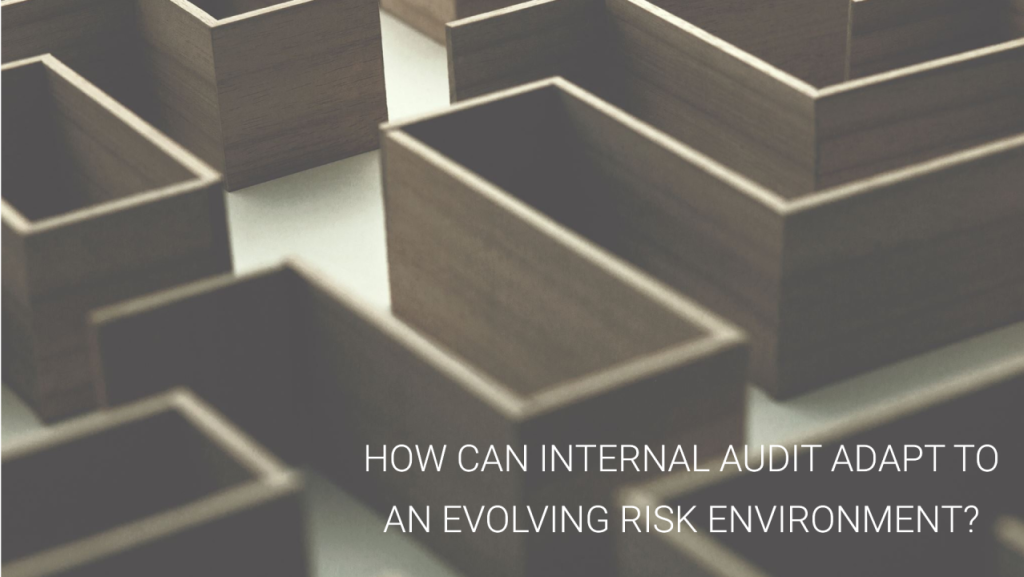In the vast worlds of corporate governance and interstellar exploration, two figures stand as guardians of success: the Chief Audit Executive (CAE) and Mr. Spock from Star Trek. While their domains differ—one navigating organizational risks, the other exploring the final frontier—their roles share profound similarities. Both are tasked with ensuring survival, fostering strategic decision-making, and balancing logic with human emotion. Through their journeys, they demonstrate how combining analytical rigor with emotional intelligence creates a foundation for trust, leadership, and resilience.
This article explores how CAEs and Spock embody the principles of guardianship, how their evolution has made them indispensable, and the lessons each can teach us about leadership in a complex world.
Guardianship Through Logic and Objectivity
Both CAEs and Spock are defined by their ability to remain objective under pressure. The CAE serves as an independent voice within an organization, ensuring that risks are identified, controls are effective, and governance processes are sound. They provide assurance to stakeholders by evaluating compliance, identifying gaps, and advising on improvements—all without directly implementing solutions. Similarly, Spock operates as Captain Kirk’s logical advisor, offering unemotional analysis to guide decisions. His dispassionate approach often counterbalances Kirk’s impulsive nature, ensuring that the Enterprise avoids disaster.
For example, in Star Trek II: The Wrath of Khan, Spock sacrifices himself to save the crew by repairing the warp drive in a radiation-filled chamber. His decision exemplifies his famous principle: “The needs of the many outweigh the needs of the few.” This logical yet selfless act mirrors how CAEs prioritize organizational well-being over individual interests. By identifying systemic risks or inefficiencies—even if it means delivering unpopular truths to executives—they safeguard the organization’s long-term success.
Similarly, CAEs rely on their independence and objectivity to provide critical insights. Whether flagging potential compliance issues, cybersecurity vulnerabilities, or gaps in transformational projects like ERP implementations, their role is to protect the organization’s mission and ensure its resilience against unforeseen challenges.
Spock: The Journey to Balance
Spock’s character arc across Star Trek is a masterclass in balancing logic with emotional intelligence. As a half-human, half-Vulcan, Spock begins his journey deeply committed to Vulcan logic while suppressing his human emotions—a choice shaped by cultural expectations. However, his experiences aboard the Enterprise teach him that emotions are not weaknesses but complementary tools for leadership and decision-making.
In The Galileo Seven, Spock finds himself stranded on a hostile planet with limited resources and a crew looking to him for leadership. Initially relying solely on logic, he calculates every move without considering morale or hope—until he makes an uncharacteristic decision to ignite fuel as a distress signal. While this choice seems illogical at first glance, it ultimately saves the crew by attracting a rescue team. This pivotal moment demonstrates Spock’s growing understanding that logic alone cannot address every challenge; sometimes hope and intuition play critical roles in survival and success.
By embracing his humanity over time, Spock evolves into a more empathetic leader who inspires loyalty among his peers. His ability to balance reason with compassion strengthens his relationships with Kirk and McCoy while enhancing his effectiveness as an advisor. This evolution underscores that true leadership requires not just intellect but also emotional connection—a lesson equally relevant for today’s CAEs.
CAEs: From Objectivity to Emotional Intelligence
Like Spock’s journey from pure logic to balanced leadership, modern CAEs are evolving beyond their traditional roles as compliance watchdogs to become strategic advisors who blend analytical rigor with emotional intelligence (EI). While technical expertise remains foundational, EI has emerged as a critical skill for building trust, fostering collaboration, and delivering impactful insights in ways that resonate with diverse stakeholders.
Examples of CAE Impact in High-Stakes Scenarios:
- Transformational Projects: During a company-wide ERP system overhaul, a CAE uncovered governance gaps that risked delays and cost overruns. By advising on risk mitigation strategies, the CAE ensured the project stayed on track, saving millions in potential losses1.
- M&A Activity: In a merger between two pharmaceutical giants, a CAE identified cultural misalignment and process redundancies that threatened integration. Their foresight allowed leadership to address these risks early, preserving shareholder value and accelerating synergy realization.
- Talent Management: A CAE’s audit revealed weak succession planning in a tech firm’s engineering division. By highlighting retention risks and recommending mentorship programs, they helped the company retain top talent during a competitive hiring surge.
- Operational Foresight: During supply chain disruptions, a CAE flagged vulnerabilities in vendor dependencies. Their insights enabled the organization to diversify suppliers and avoid production halts.
These scenarios mirror Spock’s ability to anticipate threats through meticulous analysis—a skill that repeatedly saves the Enterprise. Both roles demonstrate that foresight combined with adaptability is essential for mitigating risks effectively.
Strategic Advisors in Crisis: Logic Meets Empathy
Both Spock and CAEs shine brightest during crises when stakes are high and decisions must be made quickly yet thoughtfully. In Star Trek III: The Search for Spock, Kirk risks everything to retrieve Spock from a hostile planet because he recognizes Spock’s irreplaceable value as both an advisor and friend. Similarly, organizations increasingly rely on CAEs during high-stakes situations such as cybersecurity breaches or regulatory upheaval.
For instance, when a healthcare provider faced a ransomware attack, the CAE’s preemptive audit of IT controls identified weaknesses in encryption protocols. Though the findings were initially met with resistance, the CAE’s emotionally intelligent communication—framing risks in terms of patient safety and reputational damage—secured executive buy-in for urgent upgrades. This proactive stance prevented a catastrophic data breach.
Such moments parallel Spock’s crisis leadership in The Wrath of Khan. His calm under pressure and ethical clarity—“I have been, and always shall be, your friend”—show how logic and empathy can coexist to inspire trust and resolve.
Balancing Logic and Humanity: A Leadership Imperative
The greatest lesson from both Spock and CAEs is that true leadership requires balancing logic with humanity. In Star Trek IV: The Voyage Home, Spock chooses to save Chekov not because it is logical but because it is morally right—an act reflecting his growing empathy. Similarly, effective CAEs understand that while data-driven insights are crucial, empathy and ethical considerations must guide their recommendations.
This balance is particularly relevant as organizations face challenges like ESG initiatives or DEI goals under heightened scrutiny. Take the example of a CAE auditing a manufacturing firm’s sustainability practices: by blending technical assessments with stakeholder interviews, they uncovered disparities between corporate ESG reports and frontline worker experiences. Their emotionally intelligent approach—validating employee concerns while presenting data-backed solutions—transformed the audit from a compliance exercise into a catalyst for cultural change.
Conclusion: Guardians of Success
The parallels between Chief Audit Executives and Mr. Spock reveal profound truths about leadership in any context. Both roles demand independence, analytical rigor, and unwavering commitment to safeguarding their respective missions—whether steering a starship or ensuring organizational resilience. Yet their true power lies in their evolution: by embracing emotional intelligence alongside logic, they transform into trusted advisors who inspire confidence among those they serve.
As we navigate an increasingly complex world—be it corporate or cosmic—the lessons from these guardians remind us that success is not just about making rational decisions but about doing so with empathy, integrity, and courage. For CAEs and aspiring leaders everywhere, the message is clear: Live long and prosper by balancing head and heart.
References:
VoltageControl – The Role of Emotional Intelligence and Empathy in Leadership
Deloitte – Cyber Risk and the Role of the Chief Audit Executive


